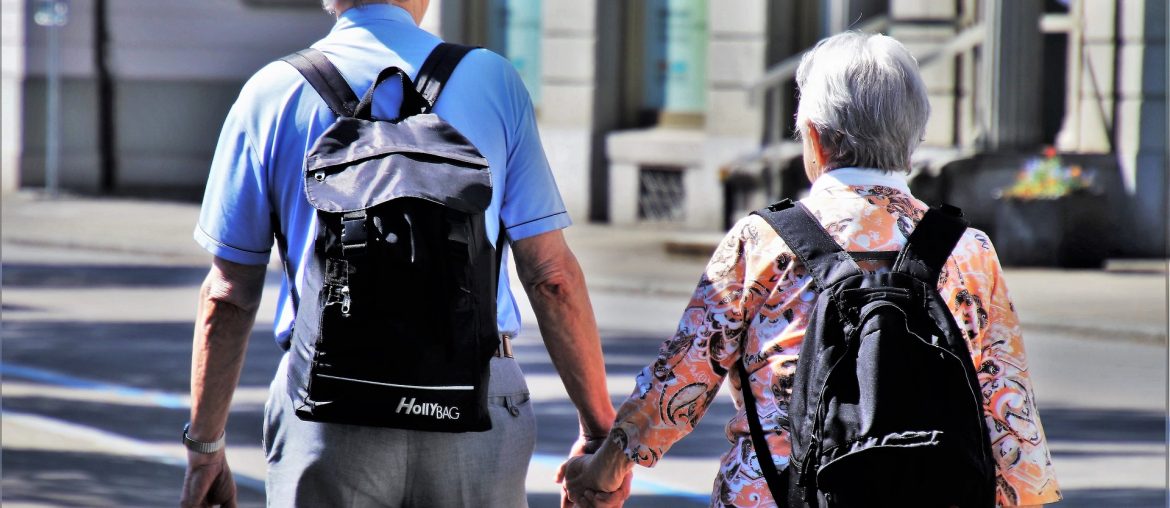In the travel industry, older travellers have long been tagged as being the most conservative demographic in terms of their preferences and habits – to put it bluntly, the most stuck in their ways.
Once people reach their late 60s and 70s, the perceived wisdom goes, they are more likely to travel repeatedly to the same destination and stay in the same accommodation. At the very least, they will stick to one trusted travel agent, putting faith in them to book complete travel itineraries that suit their needs.
According to these same stereotypes, this older group of travellers rarely do any research or book online, preferring the face-to-face experience of going into a high street travel agent. They are also the most cautious group when it comes to taking any risks when they travel – which means they should be the most reluctant to spread their wings again in the wake of the COVID-19 pandemic.
Yet it has become pretty apparent that this last assumption is a distance away from the mark – raising questions about everything else people think they know about senior travellers. This is backed up by recent research from analytics company Global Data, which shows that what older people think, want and do when it comes to travel is actually quite different to what is generally expected.
The overall picture is that, far from being a cautious, conservative group who stick to what they know when it comes to travel, the over-70s are in fact actively seeking out new experiences, embracing new trends – and are raring to get back out exploring the world again in the wake of the pandemic.
If you are in this age bracket, this may well be a moment of liberation as far as travel is concerned. Instead of being the ‘silent generation’ referred to by Global Data – a reference to the fact that the over 70s often get overlooked amidst all the noise of the travel industry – this could be a turning point for older travellers.
Certainly we appear to be entering a new post-COVID era when senior travellers are prepared to flex their muscles more and push to the front of the queue. Here are some of Global Data’s key findings and what they could mean.
Over 70s are raring to travel again after the pandemic
Because older people have been most vulnerable to COVID-19, it might be assumed that they are more cautious about the prospect of mingling again. But in fact, Global Data found that three quarters of over 70s have little or no concerns about getting out into the big wide world again. If you are in this age group, you will know your own feelings on this. Perhaps it is confidence in vaccines, perhaps a desire to live life to the full again after 18 months-plus of isolating and doing very little at all.
Whatever your reasons for being eager to travel, one thing is for sure – having seen their industry decimated by the pandemic, travel companies will fall over themselves now to embrace your custom, putting you in pole position to get exactly what you want out of travel. After all, it is older people who have the financial means to start travelling again – just 26% of over 70s told Global Data that they were concerned about their personal financial situation, versus 77% of Millennials.
Focus switches away from city breaks
It would be wrong to say that a willingness to travel again means that over-70s opinions on travel have been completely unmoved by the pandemic. One interesting thing that Global Data’s survey found was that older people are looking at different kinds of holiday compared to what their preferences were before COVID.
Prior to the pandemic, city breaks were the second most popular type of holiday amongst over 70s. But this has now slipped as, naturally, the appeal of crowded cities has lost some of its shine. This ties in with a general trend seen amongst most age groups – a lot of people are shunning the mainstream tourist hotspots, the bustling cities and teeming resorts, and looking for quieter, more off-the-beaten-path destinations where it’s easier to keep a safe social distance.
This shift in the kind of places tourists want to go will work well for older travellers looking for a bit more peace and tranquillity from their time away. Demand will open up more transport routes to once hard-to-reach beauty spots, it will increase the choices available, and crucially, it will bring down prices for visiting places once considered far off the main tourist drag.
Older travellers are ready to embrace technology
One of the most clumsy assumptions made by travel companies is that you will do most of your business online with customers up to a certain age, and after that, you have to maintain an in-person presence. It means that advertising and promotions online often barely consider older people, no attempt is made to push apps or digital services to them etc.
Yet a third of over-70s surveyed by Global Data said they would now happily buy travel products, including making bookings, online. Just under half said they would use cards or a ‘smart wallet’ on their mobile phone for their holiday money rather than exchanging cash before they go. These are much higher figures than seen in previous surveys.
One big benefit of embracing technology for older travellers is that it will make finding affordable travel insurance much easier. Especially once they reach their 70s, senior travellers have frequently faced sky-high premiums because of the tendency of mainstream providers to slap on extra surcharges year by year to compensate for the increased likelihood of older people needing to make a medical claim against their travel insurance.
This is hard to escape if you have been used to only buying travel insurance through standard high street providers. But online, there are companies that specialise in over 70s travel insurance, basing premiums on an assessment of the individual, not their age. Shopping around for travel insurance online can literally save you hundreds of pounds once you reach your 70s.




